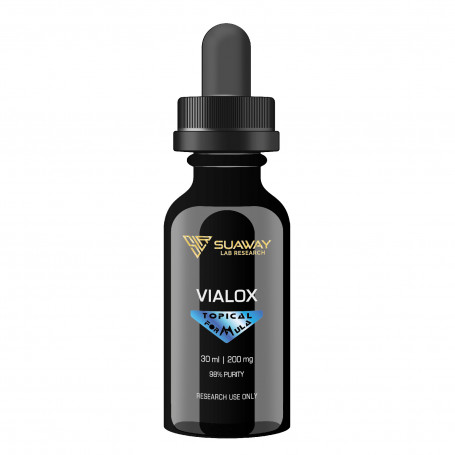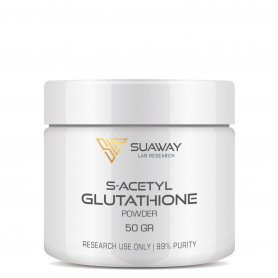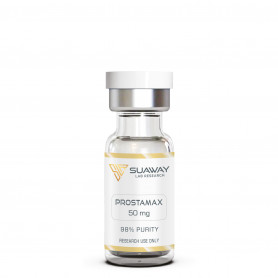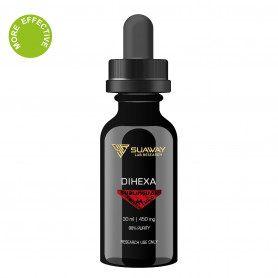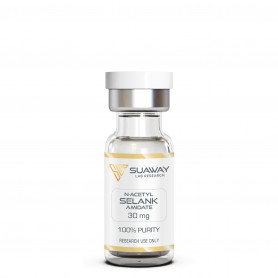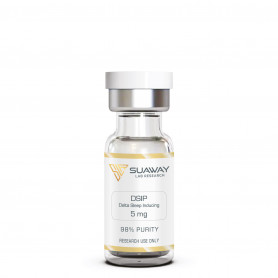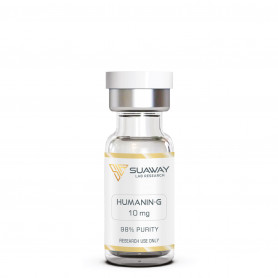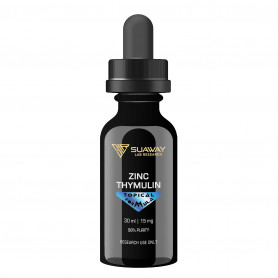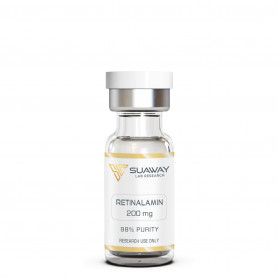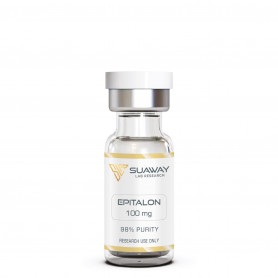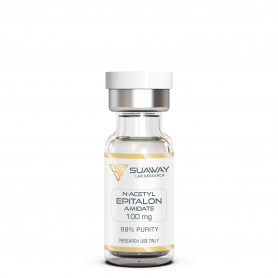Description
STRUCTURE
Sequence: H-Gly-Pro-Arg-Pro-Ala-OH
Molecular Formula: C21H36N8O6
Molecular Weight: 496.6 g/mol
PubChem CID: 11547785
Peptide purity: greater than 98%
Other details: No TFA Salt, No Mannitol
Storage: This product must be stored at 4°C. Not suitable for freezing.
Vialox is for topical use only
DESCRIPTION
Vialox is a five-amino-acid-long peptide derived from snake venom. It is a competitive antagonist of the nicotinic acetylcholine receptor. As a result, it has a curare-like effect at the neuromuscular junction, preventing nervous system signals from reaching the muscle and thus preventing muscle contraction.
In another word, it has an effect similar to that of Botox, causing partial muscle paralysis and thus reducing the appearance of fine lines and wrinkles.
Experiments with animal models suggest that Vialox can reduce wrinkles in nearly 50% of subjects and decrease skin roughness in 47% of subjects after 28 days of twice-daily application.
Vialox is primarily of interest for its ability to interfere with the communication between nerves and muscles. Unlike many nicotinic acetylcholine receptor (AChR) antagonists, Vialox affects only peripheral AChRs and has no impact on central neuronal receptors when tested in animal models. This would indicate that the peptide has effects only at the neuromuscular junction, which may make it suitable not only for cosmetic applications (as a Botox alternative), but also for use in certain spastic conditions such as tension headache, migraine headache, facial spasm, etc.
Vialox interferes with the normal signal transmission between nerves and muscles. Normally, signals are transmitted when a nerve releases acetylcholine from its axon. The acetylcholine travels across the neuromuscular junction to bind to a receptor on the muscle. When this happens, muscle contraction occurs. Vialox interferes with this process by binding to the AChR itself. Vialox does not cause muscle contraction when it binds to the AChR, but rather blocks acetylcholine from binding. The net result is a decrease in the amount of acetylcholine binding and a reduction in the number and strength of muscle contractions. This effect is similar to what is seen with some types of snake venom, the toxin curare, and Botox.
When muscles that control expression are partially paralyzed, as with Botox, they are forced to relax. This relaxation can help to relieve mimic wrinkles, such as crow’s feet around the eyes, as well as expression lines, such as those that affect the forehead.
REFERENCES
D. Servent et al., "Only snake curaremimetic toxins with a fifth disulfide bond have high affinity for the neuronal alpha7 nicotinic receptor" [PubMed]
G. Mourier et al., "Chemical engineering of a three-fingered toxin with anti-alpha7 neuronal acetylcholine receptor activity" [PubMed]
D. Servent et al., "Functional determinants by which snake and cone snail toxins block the alpha 7 neuronal nicotinic acetylcholine receptors" [PubMed]
S. Dutertre et al., "Nicotinic acetylcholine receptor inhibitors derived from snake and snail venoms" [PubMed]
I.E. Kasheverov et al., "Naturally occurring and synthetic peptides acting on nicotinic acetylcholine receptors" [PubMed]
V. Tsetlin et al., "Polypeptide and peptide toxins, magnifying lenses for binding sites in nicotinic acetylcholine receptors" [PubMed]
DISCLAIMER
This product is intendend for lab research and development use only. These studies are performed outside of the body. This product is not medicines or drugs and has not been approved by the FDA or EMA to prevent, treat or cure any medical condition, ailment or disease. Bodily introduction of any kind into humans or animals is strictly forbidden by law. This product should only be handled by licensed, qualified professionals.
All product information provided on this website is for informational and educational purposes only.

